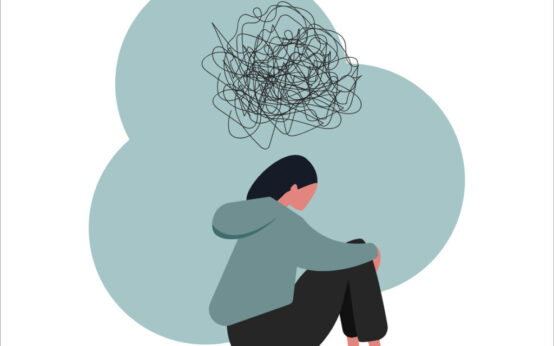A Quick Guide
An extreme, abrupt burst of fear, worry, or anxiety is known as a panic attack. They can be overwhelming and exhibit both physical and emotional effects. When you experience a panic attack, you can have trouble breathing, excessive sweating, trembling, and a racing heart. Sometimes people seem to believe they are having a heart attack because they feel chest pain and a sense of being detached from reality or from themselves throughout a panic attack while some have described getting a stroke-like experience. So these are just some of the symptoms you need to watch out for. If you experience them often then, you should get treatment for it. Moreover, we will also be discussing some tips you can use to stop a panic attack.
Watch: [What causes panic attacks, and how can you prevent them?]
Treatment
The treatment for a panic attack consists of both psychotherapy and medication depending on the severity of your symptoms.
Psychotherapy
People who experience frequent panic attacks can benefit from cognitive-behavioral therapy (CBT) and other forms of treatment. CBT seeks to assist you in altering the way you perceive difficult or terrifying circumstances. It aids you in developing fresh strategies for dealing with these issues as they emerge.
CBT is available for individuals and groups. It can be online or in-person, and treatment lengths also vary depending on the individual. As part of exposure-based CBT, your counselor may present you with situations that could set off a panic attack in a controlled environment and assist you in overcoming it.
Some research suggests that CBT may alter brain regions linked to panic symptoms in addition to modifying behavior. In a 2018 study, few researchers discovered proof that individuals who participated in four exposure-based CBT sessions per week noticed modifications in the brain regions responsible for panic episodes. However, since this was a preliminary study, more investigation is required.
Medication
Your doctor might prescribe you the following:
Antidepressants
The first line of defense against future panic episodes is typically an antidepressant. Additionally, it is preferred over anti-anxiety medications for long-term use. Selective serotonin reuptake inhibitors (SSRIs), such as escitalopram (Lexapro) or fluoxetine (Prozac), may be prescribed to you by your doctor.
Anti-anxiety medication
Your doctor may prescribe a benzodiazepine or other anti-anxiety prescription medication. They can, however, easily cause dependence and won’t help address an underlying anxiety issue. So doctors only advise using them temporarily during a crisis.
Before deciding which drug works best for you, you and your doctor may need to test a few options. Some people respond better to more than one type of drug.
5 Coping Strategies
While you do need professional treatment, here are some of the additional coping strategies you can use during an episode of a panic attack.
Recognize that it’s a panic attack: Once you recognize that it’s a panic attack and you are not simply having a heart attack. You can then remind yourself that it will be okay.
Try to remember that this time will pass: A panic attack can seem really scary so when you try to remember that it’s just gonna be for a short time and won’t cause you any physical harm, it can help to remember that.
Try to take deep breaths: Deep breathing can actually help get a panic attack under control.
Close your eyes: It might help if you close your eyes. By doing so, you can block the outside stimuli and focus on your breathing.
The 54321 method: This is a form of mindfulness and a grounding technique. It assists in shifting the individual’s attention from the causes of stress. The individual using this technique should carry out each of the following actions carefully and completely:
- Observe 5 different objects. Consider each one for a brief period of time.
- Listen for 4 different sounds. Consider their history and what makes them unique.
- Touch 3 things. Think about their feel, their temperature, and the purposes they serve.
- Name 2 distinct smells. Your coffee, soap, or washing detergent on your clothes may be the source of this smell.
- Name 1 thing you can taste. Take note of the taste you are currently experiencing or try tasting some sweets.
We hope you found this article useful in understanding the treatment for panic attacks.



 What You Need to Know About Trauma & its effects
What You Need to Know About Trauma & its effects  Meditation and ADHD: Does it work & How to get started?
Meditation and ADHD: Does it work & How to get started?  The Psychology of Stress: Exploring Causes & Coping Strategies
The Psychology of Stress: Exploring Causes & Coping Strategies  Gestalt Therapy: All you need to know about it
Gestalt Therapy: All you need to know about it  6 Effective Strategies to Stop Overthinking
6 Effective Strategies to Stop Overthinking  Trauma and Stressor-Related Disorders: Causes, Symptoms, & Coping Strategies
Trauma and Stressor-Related Disorders: Causes, Symptoms, & Coping Strategies